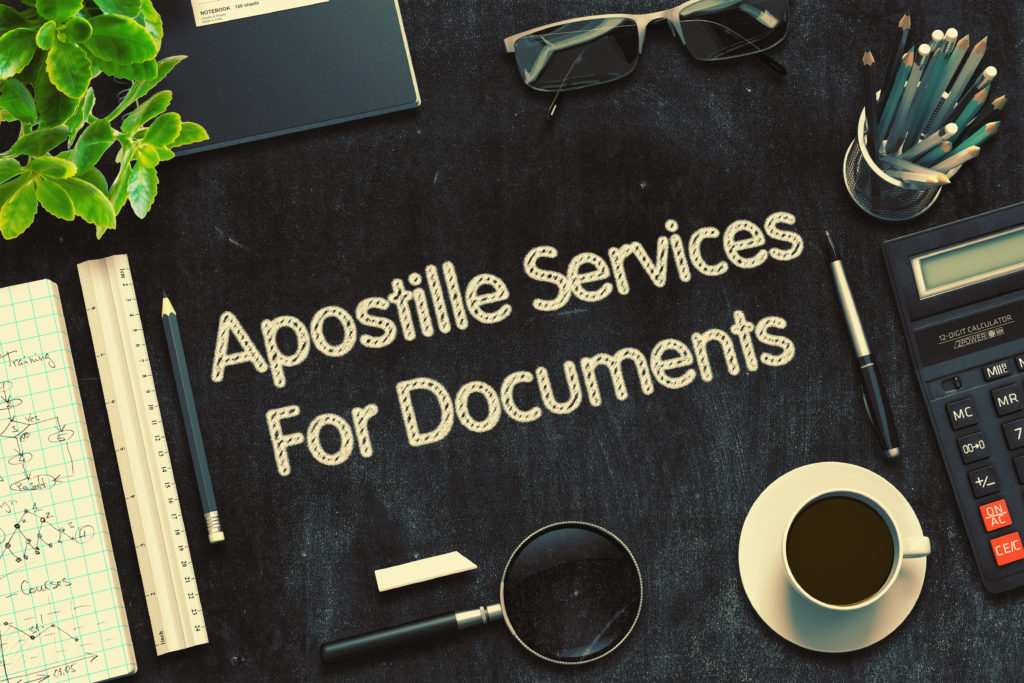At one point or another, you may find yourself in need of a power of attorney. When that time comes, you may have some questions. What is a power of attorney? When do I need one? How do I get one? To make matters more complex, there are, in fact, different types of power of attornies. In this article, we will cover everything from the curious durable power of attorney to the perplexing medical power of attorney.
What is Power of Attorney?
Before we dive into the specifics of a durable power of attorney (POA), let’s learn about a standard power of attorney. First of all, a power of attorney is not a person, but a document. A properly executed POA will legally give another person the right to act on your behalf. Powers of attorney are accepted nationwide. However, specific rules and requirements vary from state to state.
The person selected to act on your behalf is referred to as your “agent” or “attorney-in-fact”. Whoever is granting the POA, is the “principal”. A power of attorney has levels. For example, say you are selling a car and are unable to be present at the time of the transaction. Boom! A power of attorney can solve this problem. You will be able to legally give someone you trust the legal right to sign off on the sale. On the other hand, a POA can give someone absolute power in decision making. This tends to be a common choice in medical situations. Particularly in the event that someone cannot make their own decisions, from a physical or mental standpoint. A POA can last indefinitely, or for a pre-determined amount of time.
What is a Durable Power of Attorney?
Prior to the establishment of a durable power of attorney, there were four cases in which POA would be considered null and void:
- You, the principal, choose to revoke the POA
- The POA surpasses its pre-determined expiration date
- Death of the principal
- If the principal loses their mental capacity or becomes incapacitated
However, with the establishment of a durable POA, only three of those cases would cancel the power of attorney. If you select to draft a durable power of attorney, the document will remain legally valid even after the principal is deemed mentally incompetent.
Define Incompetent
Legally speaking, mental incompetence occurs when a person is mentally unable to make informed decisions. Additionally, this definition also includes instances where a person is physically incapable of communicating decisions.
A common example of incompetence is mental illness. Unfortunately, mental illness can sometimes be tricky to define and prove. Lawyers and doctors may have to get involved.
To clarify, a person should not be considered mentally incompetent simply for disagreeing with you. POA’s are involved in situations dealing with the exchange of money and/or power. Therefore, sometimes greedy people jump at the opportunity to deem a principal unfit to manage their affairs.
Furthermore, people can be deemed incompetent for more physical reasons. Such as injury, disease, comas, or unconsciousness.
Types of Power of Attorney
Hooray! We now know what a durable power of attorney is. However, that is just the tip of the POA iceberg. There three other types of power of attorney: limited, medical, and springing.
1) Medical Power of Attorney
Medical and financial reasons are typically involved in POAs. So naturally, you can draft a power of attorney based solely in medical need. A medical POA may also be referred to as a healthcare power of attorney, or a durable power of attorney for healthcare. Therefore, the medical power of attorney is also considered a durable POA by nature. A medical power of attorney gives the agent the right to make medical decisions on behalf of the principal. Specifically, in the event the principal is medically considered unable to make their own decisions. For example, if the principal is in a coma.
Medical Power of Attorney vs. Living Will
As morbid as it may sound, it is a good idea, at any age, to consider drafting a living will. Don’t worry, you do not need to go around your house putting sticky notes with family members names on furniture. The purpose of a living will is not to assign post-mortem ownership of your assets. Instead, a living will detail your medical desires should you become incapacitated. Accidents happen. You and your loved ones can avoid certain legal and medical drama by being prepared. A living will is also be referred to as a healthcare directive, advanced directive, or an advanced medical directive.
In a living will, you will detail your medical preferences in the event of certain trauma. A common example is when an accident results in a person being braindead. For many people, this state of “life” is not living at all. Therefore, they may make the choice to state in a living will that they would want their family members to “pull the plug”.
A living will is more limited in scope than a healthcare power of attorney. However, it is not uncommon for people to have a living will and a medical power of attorney.
2) Springing Power of Attorney
A springing power of attorney, as the name suggests, is designed to “spring” into effect upon the meeting of predetermined circumstances. You may also hear a springing POA referred to as “conditional”. This type of POA works in tandem with general or healthcare power of attornies.
Commonly, this type of POA is used in the event that the principal is deemed mentally unfit. Although, a springing POA can be used in a number of other situations. For example, active military men and women often choose to utilize a springing power of attorney form. Therefore, in the event of deployment, their spouse or relative can have the ability to access and control necessary finances while they are away.
3) Limited Power of Attorney
It should come as no surprise that a limited power of attorney limits the power of the agent. The principal will detail with great specificity the authority the agent will have. Often times, the principal will use a limited POA for the agent to carry out a specific task. For instance, in the event of a transaction where the principal cannot be present to sign a contract. Furthermore, a principal may grant a trusted investment adviser limited power of attorney to make portfolio decisions.
In addition to finite power, a limited POA is likely to have an expiration date. Moreover, a limited power of attorney form can include a revocation clause. Therefore, giving the principal the opportunity to void the POA at any time.
Power of Attorney Form
Specifics of POA forms vary from state to state. Additionally, the language in the document depends on the type (see above) of POA drafted. However, some basic elements in a POA are:
- Date of execution
- The signature of the principal (or a witness chosen by the principal who signs in their presence)
- A proper notarization
Furthermore, a proper POA will typically list the powers afforded to the agent. Some transactions where the principal may utilize an agent may include:
- Buying or selling property (such as cars or houses)
- Various financial decisions (banking, managing investments, taxes)
- Insurance matters
- Legal business
- Estate planning
- Matters pertaining to business operations
- Personal affairs (social security, retirement, family matters)
- Medical decisions
Naturally, this list just skims the surface. Be sure to consult your lawyer before drafting a power of attorney. Anyone can download a POA form online, but you want to be sure you have the appropriate language to deal with your specific matters appropriately.
Durable Power of Attorney Form
Specific language is required for a POA to be considered durable. The specifics of this language may vary based on state law. To reiterate, a durable power of attorney remains effective no matter the mental competence of the principal.
There are two general types of language that can make a power of attorney durable. The difference lies in the moment of effectiveness.
- Immediate effectiveness – “This power of attorney shall not be affected by my subsequent disability, incapacity, or incompetence.”
- Effective only in the event of mental incompetence – “This power of attorney shall become effective upon the date of my disability, incapacity, or incompetence.” (this language is also indicative of a springing POA)
Remember, specific verbiage and other necessary requirements may differ by state. Be sure to check with your local lawyer to draft a proper POA for your state and situation.
How to Choose an Agent
Choosing a suitable agent is vital in the POA process. This is an incredibly important role. An agent has immense power. The amount of said power is, however, entirely up to the principal to dictate.
Things to ask yourself when selecting an agent:
- Do you trust this person with valuable financial information?
- Will this person be able to manage this responsibility? Be sure to discuss your offer with them, as opposed to simply assigning it to someone
- Do you trust this person to handle your legal affairs wisely?
- How does this person manage financial and legal matters of their own? This can be a good indication of their ability to wisely (or poorly) handle yours
Keep in mind that an agent is typically a spouse, parent, or family member. However, in certain matters, you may hire a lawyer or an accountant to act as your agent. Therefore, you may have to pay them a fee for this service.
Additionally, it may be a good idea to have a second agent on your POA. This decision can be helpful in the event your original agent can no longer perform their duties (be it from illness, death, or refusal to do so).
Power of Attorney Fraud
Cleary, POA’s are incredibly influential legal documents. Giving someone the ability to legally make decisions on your behalf is a big leap of faith. Unfortunately, sometimes that leap turns into a hard fall. Sadly, power of attorney fraud is a not-so-uncommon issue. Financial abuse and identity theft are common examples of POA fraud. Evan’s Law specializes in fraud cases and details several examples of power of attorney fraud.
Signs of Power of Attorney Fraud
The best way to prevent POA fraud is by assigning someone you fully trust as your agent. However, it is useful to know the signs of power of attorney fraud. Such as:
- Hesitation to communicate by the agent
- Reluctance or refusal for the agent to share financial records with the principal
- Sudden changes bank accounts, finances, or other personal matters
- Pushy or demanding behavior from the agent (especially in regards to signing something)
If you are experiencing any of the aforementioned red flags, terminate your POA immediately. Remember, as the principal you have the power to retract the POA at any time.
Power of Attorney by State
As previously mentioned, POA rules and regulations can vary from state to state. For your convenience, we have listed a few states below as examples. If your state is not listed, US Legal provides a helpful breakdown of the power of attorney rules by state.
Power of Attorney California
In California, the principal must be at least 18 years old and of sound mind in order to legally sign off on a power of attorney. In matters pertaining to finances, the principal must sign in the presence of a notary, or at least two witnesses. Regarding real estate transactions, notarization is mandatory. Two witness signatures are required on medical POAs. However, the witnesses cannot be your healthcare provider or their employees, nor your agent.
The specifics of California power of attorney laws can be found in the California Probate Code.
Power of Attorney Texas
Any legal adult (18+) can have a power of attorney in the state of Texas. According to Legal Zoom, the Texas state-mandated power of attorney language is as follows:
- For an immediately effective durable POA: “This power of attorney is not affected by subsequent disability or incapacity of the principal.”
- For a springing durable POA: “This power of attorney becomes effective on the disability or incapacity of the principal.”
Furthermore, the Texas legislature provides state-approved power of attorney forms online. Using these pre-approved forms will make your POA more official in the eyes of the state. Finally, notarization will make the POA official.
Power of Attorney Florida
It can be quite tricky to get a power of attorney in Florida. Unlike most other states, Florida does not accept provide a state financial POA or accept springing POAs.
If you desire a durable POA, the following language is required:
- “This durable power of attorney is not terminated by subsequent incapacity of the principal except as provided in Chapter 709, Florida Statutes”
We have established the terms “healthcare power of attorney” and “medical power of attorney” earlier in this article. In Florida, however, these documents are called a “Designation of Health Care Surrogate”. Special requirements for this type of Florida POA are detailed in Florida Statutes.
A power of attorney must be signed by two witnesses and a notary to be official in Florida.
All legal specifications can be found in the Florida Power of Attorney Act.
What is a Notarization?
Power of attorney laws and regulations clearly vary greatly across the nation. However, whether or not your state requires it, you should get any and all POA documents notarized. If you are unfamiliar with that term, a notarization is when an unbias third party witnesses the signing of important documents. The purpose of notarization is to prevent fraud and make documents more official in the eyes of the state. A notary is a person who witnesses signatures. Notaries are official representatives of the secretary of state.
Steps of a Notoriztion
What happens exactly during a notarization? Like POAs, there are different types of notarizations, with different rules across the country. However, most notarizations involve the following steps:
- Identification – The foundational element of notarization is properly identifying the signer. The notary will ask you for an accurate photo i.d. The most widely accepted forms of i.d. are a valid drivers license or passport
- Understanding and Consent – Once the notary has confirmed your identity, they will ask you if you understand the document in full and are choosing to sign at your own free will
- Signing – Some states do not require the actual signing to occur in the presence of the notary. However, it is a good idea to wait to sign your document in front of the notary. Better safe than sorry!
- Notary Journal – Specifics of this will vary by state, but essentially the notary will document the transaction in their notary journal. Some notaries may require that you sign and stamp a thumbprint in the journal for their records
- Notary Stamp – The final and official mark of a proper notarization is a seal (or stamp) on the document. These stamps vary in appearance, but should all include the notary’s name, state of certification, and date of expiration
Be sure to check with your local secretary of states office about the rules of your state.
Where to Locate a Notary
Fortunately, there are millions of notaries easily available nationwide. Hours, pricing, and availability are dependent entirely on where you live. Some ideas of where to start your search:
- Public library – Your local library houses more than literature! That’s right, you can often find free or affordable notary services at the public library
- Local government offices – Your city or town hall, courthouse, or county clerks office will likely have a notary available for public use
- Financial Institutions – If you have an account at a bank, you may qualify for complimentary notary services. Otherwise, smaller banks and local credit unions typically offer a notary at an affordable rate
- Your workplace – Many larger companies require the services of a notary regularly, so they keep one on staff! Talk about work perks!
- Car dealerships, real estate offices, and insurance agencies – Check with your local businesses about their notary pricing and availability
- Mobile Notary – These days, anything can get delivered to your door – and a notary is no exception! Skip the traffic and have a notary come to you. This is a very convenient option for people living in thriving cities, with little spare time.
Clearly, you should have no trouble finding a notary near you. However, save yourself time by doing research on your areas pricing and availability.
Notary vs. Attorney
It is important to understand that a notary is not an attorney. Notaries cannot give legal advice to their clients. Therefore, a notary cannot explain the content of the document to the client. Notarization does not validate the legality of the contents of a document.
A power of attorney is a very influential legal document. You should strongly consider having a lawyer look over yours. Moreover, you should have your lawyer translate the document to you. Legal jargon is notoriously confusing. It is imperative that you understand any document that you are signing.
Durable Power of Attorney: In Conclusion
In America, we are fortunate enough to have the ability to exercise free will and make our own decisions. Having a durable power of attorney is often necessary, but should be executed with great care. Transferring your power to make important medical, financial, and personal decisions should not be taken lightly. Keep in mind that laws and regulations vary widely depending on your state of residence. Consult a trusted lawyer in your area to determine the best type of POA for you and your situation.
Sources
https://www.legalzoom.com/articles/what-is-a-durable-power-of-attorney
https://ctlawhelp.org/en/power-of-attorney
https://www.legalzoom.com/articles/power-of-attorney-requirements-in-california
https://www.nationalnotary.org/knowledge-center/about-notaries/what-is-notarization
https://www.nationalnotary.org/notary-bulletin/blog/2015/04/5-steps-proper-notarization
https://www.nationalnotary.org/knowledge-center/about-notaries
https://www.thebalanceeveryday.com/where-to-notarize-affidavit-896914
https://www.legalzoom.com/articles/power-of-attorney-requirements-in-florida
https://www.rocketlawyer.com/article/when-to-use-a-springing-power-of-attorney-.rl
https://www.evanslaw.com/practice-areas/financial-elder-abuse/power-of-attorney-fraud/
https://www.legalzoom.com/articles/what-is-a-medical-power-of-attorney-form
https://info.legalzoom.com/definition-limited-power-attorney-20259.html
https://help.legalnature.com/articles/the-basics-power-of-attorney
https://www.legalzoom.com/articles/power-of-attorney-requirements-in-texas
https://www.rocketlawyer.com/article/how-to-choose-an-agent-for-your-power-of-attorney.rl





